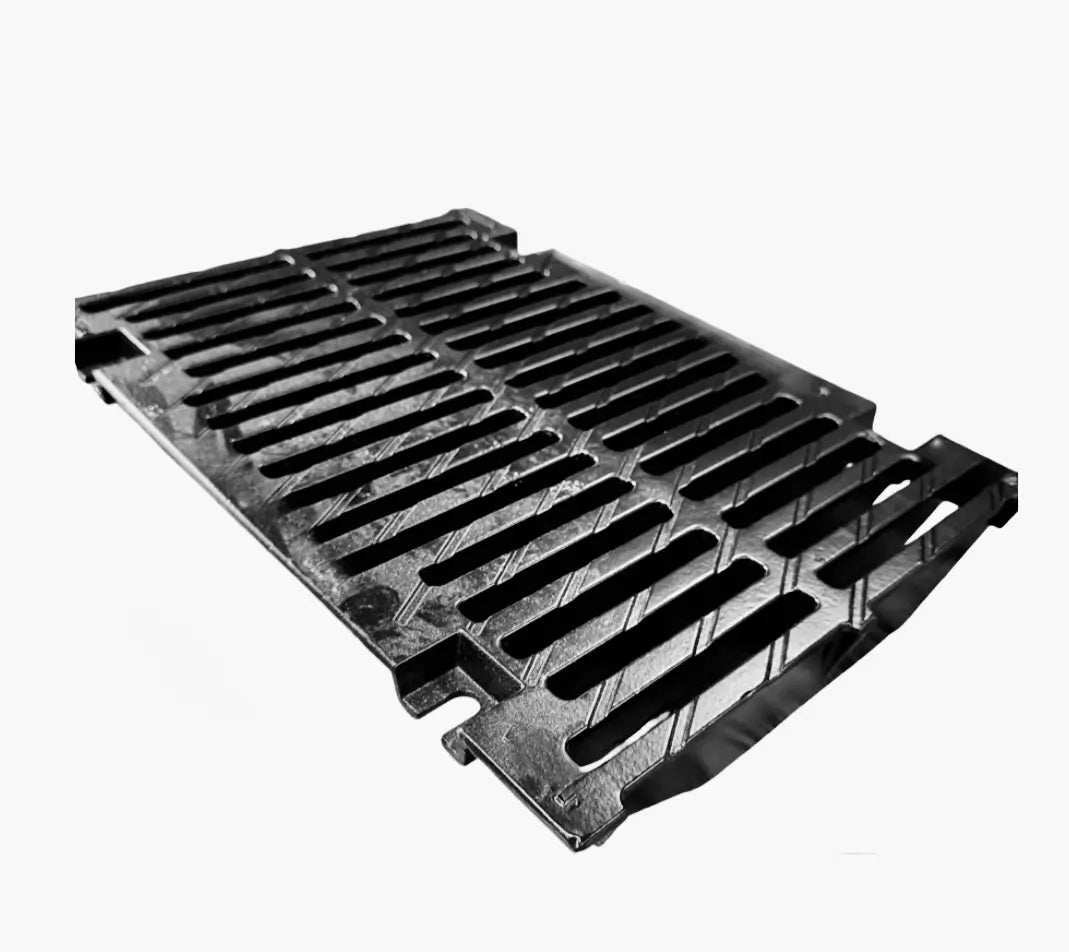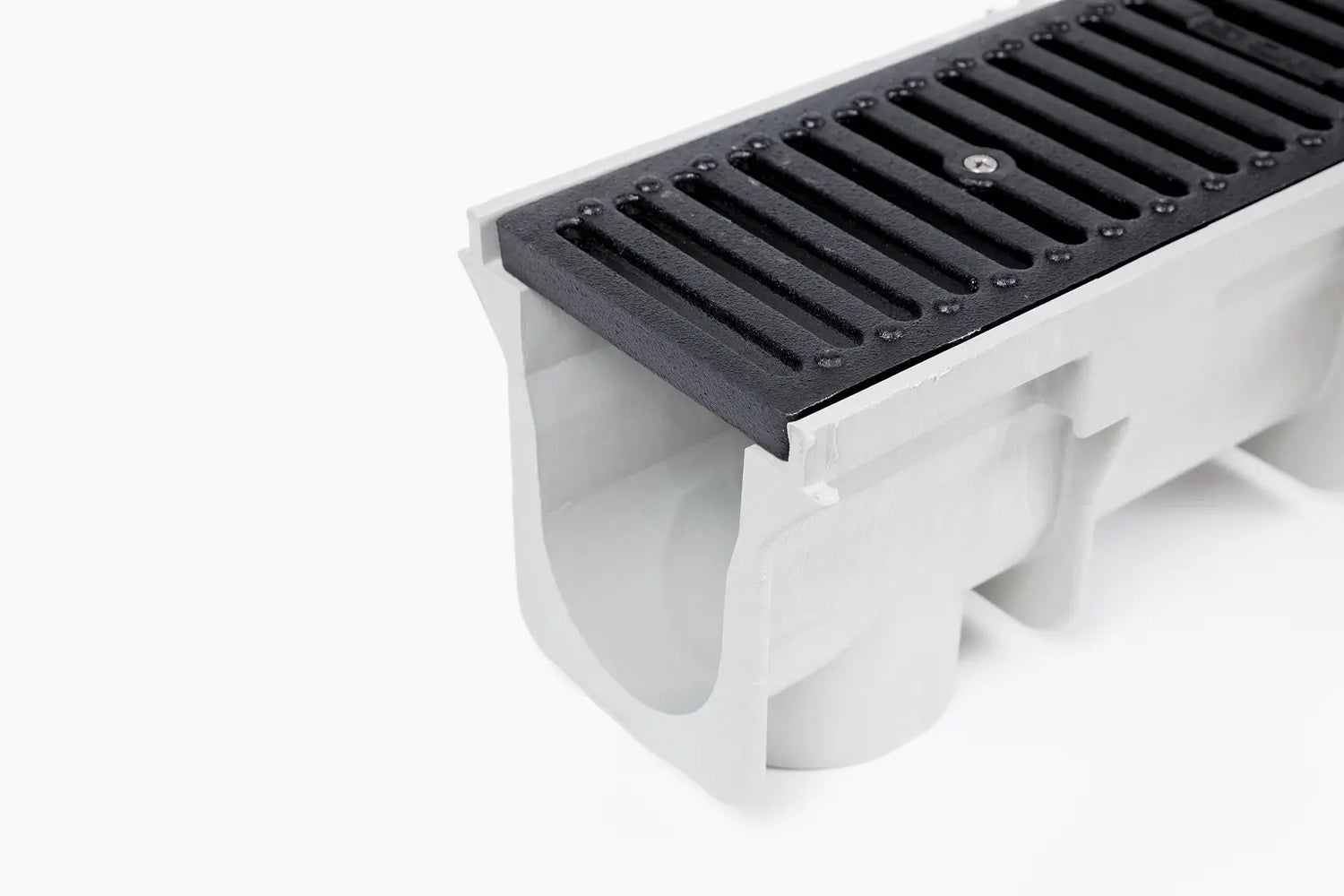
Highway & Roadway Trench Drains
Highways, interstates, and municipal roadways require high-capacity drainage systems to manage stormwater efficiently and preserve pavement integrity. Standing water can cause hydroplaning, freeze–thaw damage, and structural degradation — all of which impact safety and maintenance costs. TrenchDrainCo trench drain systems are engineered for extreme traffic loads, rapid runoff management, and long-term performance under constant vehicular stress. Built to DOT standards, TrenchDrainCo systems ensure reliable roadway drainage in even the harshest conditions.
Key Requirements
-
Load Rating
Typically E600 to F900, depending on roadway classification.
• Urban streets and intersections: D400–E600 for mixed traffic.
• Highways, interstates, and bridge decks: F900 for heavy truck and bus loads.
• Toll plazas and service lanes: E600–F900 for continuous traffic.
• Pedestrian or shoulder areas: C250–D400 for light vehicle access.
Drains must resist impact, vibration, and deformation under sustained dynamic loads.
-
Material Durability
Roadway drainage systems must withstand constant exposure to traffic, water, salts, and temperature fluctuations.
• Fiber-Reinforced Concrete (FRC) or Polymer Concrete channels for maximum compressive strength.
• Ductile-iron grates and frames rated F900 for long-term, heavy-duty service.
• Galvanized or epoxy-coated edge rails for corrosion protection against de-icing salts.
• Stainless steel components for bridge decks or coastal installations.
• Reinforced locking systems to prevent grate displacement or rattle under high-speed traffic.
-
Site Conditions
• Continuous exposure to rain, freeze–thaw cycles, and debris.
• Pavement and concrete slabs designed with a 1–2% slope toward trench drains.
• Highways require rapid water evacuation to prevent aquaplaning.
• Drainage channels must connect to storm sewers or retention basins per DOT and EPA standards.
• Systems exposed to de-icing salts must resist chloride corrosion.
• Expansion joints required at fixed slab or bridge deck transitions.
-
User Requirements
• Safety: Prevent surface water accumulation and reduce hydroplaning risk.
• Durability: Handle repeated heavy axle loads without cracking or deformation.
• Noise control: Rattle-free grate seating for quiet operation under high-speed traffic.
• Maintenance: Easy access for debris removal and long service intervals.
• Environmental compliance: Integration with stormwater pollution prevention systems.
• Longevity: Designed for multi-decade service life under constant vehicular load.
Recommended TrenchDrainCo Systems

TrenchDrainCo FRC Highway Series
Heavy-duty fiber-reinforced concrete trench drain rated F900 for interstates and mainline roads.

TrenchDrainCo LEO 1200
Ductile-iron grate and frame system ideal for urban roadways, intersections, and toll plazas.

TrenchDrainCo Polymer Concrete Series
High-flow trench drain with corrosion-resistant channel for bridge decks and coastal roadways.

TrenchDrainCo HDPE Municipal Series
Lightweight, cost-effective drainage for secondary roads and shoulder applications.

Engineering Notes
When designing trench drains for highways and roadways:
- Position trench drains at low points, medians, and curb lines to collect sheet flow efficiently.
- Use F900-rated ductile-iron grates in all areas subjected to truck or bus traffic.
- Ensure hydraulic sizing meets FHWA (Federal Highway Administration) runoff design standards.
- Install anti-vibration locking systems to prevent grate movement under continuous traffic.
- Use corrosion-resistant materials in regions exposed to chlorides or de-icing salts.
- Incorporate catch basins and debris traps to prevent clogging and simplify maintenance.
- Design outlets to connect to stormwater treatment or detention systems for compliance with EPA NPDES regulations.

Engineered for endurance. Proven for performance.
Contact TrenchDrainCo for a trench drain system designed for highways, interstates, and municipal roadways.
📞 Call us: 212-946-3798
📧 Email us: info@trenchdrainco.com







